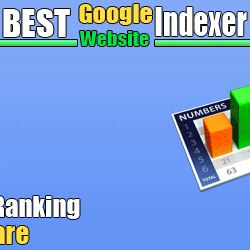A Google algorithm change can make you wonder whether you will be impacted. Will the updated Google algorithm hurt your search engine rankings?
If you let your mind run wild, you might even start to wonder whether Google’s algorithm changes will impact your site’s visibility and position on search engine results pages so much that it puts your job in jeopardy.
Table of Contents
What Is the Frequency of Google’s Algorithm Updates?
Google is constantly evolving its search ranking algorithms to provide users with the best and most relevant results. According to Danny Sullivan from Google, the search engine makes an average of nine changes per day to their algorithm, the equivalent of over 3,200 changes in a year.
These changes can range from small search query updates to major algorithm shifts, like broad core algorithm updates, which roll out each year.
Google does provide some transparency with its major algorithm updates – there are many changes each month that may go unnoticed unless you see dips or spikes in your traffic.
We refer to these unexplainable traffic fluctuations that many search engine results page (SERP) volatility sensors and SEO experts report as an “unconfirmed update.” In this blog, we’ll only call out the confirmed algorithm changes.
Google runs more than 600,000 experiments each year to test new features and functionality. These range from natural language processing (NLP) search enhancements to Bidirectional Encoder Representations (BERT)’s AI/machine learning developments.
Marketers must stay up to date on these algorithm shifts to ensure their brand’s website is optimized for the latest search engine requirements and remains visible for potential customers. It is certainly helpful to know when there is volatility in search results.
What is the last Google algorithm update?
In 2025, AI-powered marketing tools like chatbots, voice search optimization and predictive analytics will become even more widespread. However, business leaders must avoid relying solely on “set it and forget it” automation strategies and enforce a more collaborative approach between humans and AI.
2024 Google Algorithm Updates
December 2024 Core Algorithm Update
Less than a week after the November 2024 update was completed, Google launched the December 2024 Core Update on December 12th. The announcement on X explained, “If you’re wondering why there’s a core update this month after one last month, we have different core systems we’re always improving.”
The statement matches up with another made by Google this month – there will be more frequent core updates in the future. In an era when high to very high volatility has become the norm, it will be interesting to see how the SERPs look long term with more updates happening more often.
As usual, the best way to prepare your site for Google’s changes is to stay on top of the latest news from Google and maintain a focus on providing helpful information and great products for your users and customers. The ROI Revolution SEO team produces a monthly newsletter with the latest updates from Google, Bing, and other sources each month, and you can always find the most recent editions on our blog.
If you feel like your site has been hit by a core update, please contact us, and we’ll be happy to meet with you to discuss.
November 2024 Core Algorithm Update
Google launched the November core update on Monday, November 11th with little fanfare beyond a tweet on X saying that it should take about two weeks to roll out – but it actually took 23 days. Other than the usual volatility associated with a core update, we haven’t seen anything specific that seemed to be targeted. It seems safe to say that this update was a continuation of the work Google said they were focusing on with August’s core update.
Coincidental but not necessarily related to the November core update, Google added a FAQ section to its documentation for the site reputation abuse policy, and there seemed to be another round of high-profile sites hit with related manual actions. Google has said many times that its enforcement of the policy is not algorithmic, yet. Either way, those manual actions removed sites from the SERPs, which added to the volatility in November for some queries.
Remember, if you feel like your site has been hit by a core update, you’re welcome to contact us to discuss that possibility.
August 2024 Core Algorithm Update
When Google launched the August 2024 core update on August 15th, Search Advocate John Mueller wrote in the Search Central Blog that its focus is “to continue our work to improve the quality of our search results by showing more content that people find genuinely useful and less content that feels like it was made just to perform well on Search.”
This update incorporates feedback from creators and users provided after the last update to try to reward helpful content from a wider range of websites, including smaller, independent sites. In addition, it aims to reward sites that have improved over time. One of the biggest complaints after the March 2024 update was that websites that had taken a big hit from the Helpful Content Update last fall and had worked to improve their content quality did not see improvement in search rankings.
This update should take about four weeks to complete, and we will be watching to see how the rankings change. We should also point out that the day after the update started, Google announced an unrelated issue with indexing that it was working to resolve.
In the same blog post, Mueller announced updated documentation on core updates, including how to determine if your site suffered losses as the result of an update.
Post-March 2024 Core Algorithm Update
Google’s first updates of 2024 were huge! After promising SEOs that big changes were coming to the algorithm during the first few months of the year, Google released the March 2024 Core Algorithm Update and the March 2024 Spam Update on March 5th.
The March 2024 Core Algorithm Update took 45 days to complete – much longer than Google’s announcement predicted. Multiple systems were updated, and Google incorporated the Helpful Content System into the core algorithm, eliminating the need to run separate updates for it. As each part of the core algorithm was updated, the other parts needed to learn from it. This complicated process seemed to be the reason for the extended time to completion.
In the past, Google said that if a website was hit by a core algorithm update or a helpful content update, the site owners should make the necessary changes to see rankings improve with future updates, but in the case of the March 2024 update, many site owners complained their improvements seemed to go unnoticed. Others complained that websites like Reddit and Quora were ranking higher than websites with established E-E-A-T.
In early May, Google’s John Mueller said on X that recoveries for websites that took a hit from last fall’s Helpful Content Update may take longer to recover because it could take Google longer to reassess them.
After the core update finished, Google released a revised form for anyone who wanted to give feedback on the changes they noticed in the search engine results pages. In mid-May, Google Search Liaison Danny Sullivan told X users that Google read the feedback and is considering future search quality updates based on it.
While it wasn’t a core update, we should also mention that after a year of testing the Search Generative Experience (SGE) in Google Labs, Google widely released AI Overviews – a pared-down version of the SGE – in mid-May. While the AI-written answers may not show for all queries, the new feature seemed to trigger higher volatility in the rankings through the end of the month. They also triggered anger in users, leading to Google scaling back how often the answers are shown and thanking everyone for their feedback.
The WTT team is happy to say that our clients fared well through the early 2024 updates. Our goals are to set our clients up for success in Google Search and to help them stay ahead of Google’s changes. Keep up with the latest core algorithm updates here and watch the WTT blog for monthly SEO news recaps.
March 2024 Core Algorithm Update
The March 2024 core update involves changes to multiple core systems, according to Google’s announcement.
Its goal is to improve the quality of search results by incorporating a variety of signals and approaches to identify helpful content and reduce the amount of search-engine-first content shown in the SERPs.
Because many core systems are involved in this update, Google expects it to take about a month to completely roll out. Websites may experience more ranking volatility than usual as those systems become “fully updated and reinforce each other.”
March 2024 Spam Update
In the same announcement, Google also released new spam policies and announced the March 2024 Spam Update.
The three new policies are in response to recent complaints that Google’s SERPs were surfacing more spammy results than they had in years.
There are three types of spam they aim to control:
- Expired domain abuse: People buy expired domains for websites that had good reputations and then build low-quality websites using the same URL. Their hope is to rank well based on the old site’s reputation. These sites are solely made for the purpose of ranking well in Google results.
- Scaled content abuse: Some website owners generate a large number of pages for the purpose of manipulating search rankings, not helping users. While this often includes AI-generated content, Google says human-generated content will also be targeted. Content created solely for the manipulation of search results will always be considered spam.
- Site reputation abuse: People add new low-quality third-party pages to websites with good reputations with the goal of ranking well on Google. To avoid violating this policy, sites should block that content from Google Search. Google is giving website owners time to prepare for this by providing a deadline of May 5, 2024.
With any update Google introduces, there’s always a potential fluctuation in search engine rankings. While there may be no explicit actions to effectively recover from a negative impact, Google has previously suggested a review of the pages affected, indicating a decline in ranking may not necessarily mean that something is wrong with your pages. Notably, recovery between core updates is marginal, with the most considerable changes usually occurring after a subsequent core update.
Google 24 Broad Core Update
Google’s most recent broad core update, released in October 2023, has sent waves through the SEO and digital marketing industry.
Simultaneously with the October 2023 core update, Google has also begun implementing the October 2023 spam update. This rollout is estimated to take three weeks, meaning there will be a period of overlap between the spam update and the core update. In the wake of these updates, keeping an eye on your analytics becomes even more vital as it will help you isolate which update or updates are causing shifts in your website’s performance.
What’s a Broad Core Update?
Google rolls out several algorithm updates to continuously improve how it’s serving content to the end-user. Aside from routine, unannounced ones, Google posts about these major updates:
- • Link spam and Google spam content update: These spam updates aim to remove spam content from the search engine index.
- • Product reviews: Product review updates look to improve how product reviews from shoppers are surfaced on SERPs.
- • Helpful content update: The helpful content update looks to reward helpful content that answers queries quickly and with accurate information.
- • Page experience: While less frequent than the others in this list, this update looks to reward websites with an excellent user experience on target devices like desktop and mobile.
Unlike this Google algorithm update 2023 list with specific targets, the search engine titan also releases vague but impactful broad core updates for its search ranking algorithms. These are general changes that don’t have a particular goal in mind. Instead, they look to improve the quality of Google rankings by tweaking signals and weights across the board.
2023 Google Algorithm Updates
2023 is shaping up to be a tumultuous year for Google algorithm updates as the search engine continues to roll out multiple changes that affect sites that are unprepared to weather the storm.
This can be monitored using MozCast, a temperature-based measurement that reflects day-to-day changes in search rankings. On an uneventful day, the average temperature is 70°F. One example of algorithm-based search fluctuation in 2023 is that on March 15th, Google acknowledged a Core Update that spanned across 13 days. During this period, MozCast temperatures reached a peak of 108.7°F, with six days recording a temperature above 100°F.
October 2023 Broad Core update
The October 2023 Core Update was released on October 5, 2023. This broad core update rollout completed on October 19, 2023.
As with other core algorithm updates, they are designed to improve the systems that assess content overall.
October 2023 Spam Update
On October 4, 2023, Google released its October 2023 spam update that is targeted to improve its spam detection system and improve its coverage in many languages including Turkish, Vietnamese, Indonesian, Hindi, Chinese, and others.
The rollout of this spam algorithm update is expected to take approximately 2-3 weeks to complete.
September 2023 Helpful Content Update
On September 14, 2023, Google released the September helpful content update. This algorithm update focused on improving their classifier to identify helpful content. The last helpful content update was in December of 2022.
The rollout of this helpful content update completed on September 28, 2023.
Google has provided some questions that you can use to self-assess your site if it was impacted by this algorithm update. You can find this information here.
August 2023 Broad Core Update
On August 22, 2023, Google released a broad core update. The changes are about improving how Google assesses content overall. The changes may cause some pages that were previously under-rewarded to do better in search results, or it could have the opposite effect.
The August Broad Core update rollout completed on September 7, 2023. Google does provide some general guidance if your site was impacted from a core update that you can find here.
April 2023 Review Update
The April 2023 Review Update was launched on April 12, 2023 and is a significant algorithmic update regarding reviews about products, services, destinations, games, movies, and other similar topics.
This update is not only important for SEO professionals but also businesses that rely heavily on customer reviews. During its rollout, SEMRush Sensor detected high volatility on April 20th, 23rd, and 25th.
The update was designed to improve user experience and search rankings by allowing users to easily find relevant information from product and service reviews.
As part of this algorithm change, Google points to its guidance on how to create high-quality reviews.
The goal of your content should be to demonstrate expertise, provide evidence, and discuss the benefits and drawbacks of the subject. It should help users make informed decisions.
Follow best practices such as evaluating from a user’s perspective, comparing similar options, and linking to useful resources for a comprehensive and helpful review.
March 2023 Broad Core Update
The March 2023 Broad Core Update was released on March 15, 2023 and is an essential algorithm update that affects all content types within all regions and languages. According to Google, the changes are intended to improve how their systems assess content overall.
This means that pages that were previously under-rewarded may now receive better rankings in search results. The update does not target any specific pages or sites.
Site owners should focus on creating high-quality and high-value webpages with helpful content, good user experiences, and strong E-E-A-T signals (experience, expertise, authority, and trustworthiness).

Key points to remember about the October 2023 core update
- Pages move up or down based on merit
- Pages that lose traffic after a core update have not “violated” any policies
- Core updates are universal – they do not target a single niche or site
- Changes experienced through the October 2023 Core Update are not a result of any manual actions.
- The goal of all core updates is to improve the quality presented to users in search results.
- Pages that were previously “under rewarded” may see significant improvements
What to do if you’re affected by the October 2023 core update
Websites that notice changes to ranking and search visibility during a core algorithm update may jump to the conclusion that there needs to be a “fix”, however, it’s important to remember that this is not always the case.
Points to remember about Google’s core algorithm updates
- Websites that see negative changes to traffic or visibility may need to change tact when it comes to their content strategy.
- Refer to Google’s self-assessment documentation when reviewing content
- Audit your website for performance drops and try to draw correlations between your website, as well as websites that are performing well in SERPs.
- Pages that are outperforming your website may come back to the fact that they have greater experience or expertise (think E-E-A-T) on the topic.
- Pages that are impacted and “fixed” by changes following a core update may need to wait until future core updates to see the full effects/rewards of these improvements.
Self-assessment can be inherently difficult. It is a good idea to have your content assessed by a third party against your competitors to get a better idea of where you may be missing the mark.
What now?
A Google algorithm update 2023 causes SERP volatility, so it’s crucial to always tweak your strategy, abide by Google’s best practices and apply a white-hat search engine optimization (SEO) approach.
Here are six fool-proof ways of achieving evergreen rankings after a Google broad core update:
1. Audit Your Search Rankings
Start by taking a look at your SERP visibility and asking these questions:
• What keywords have dropped in rank?
• Are there any new keywords that you’re now ranking for?
• Have pages lost visibility for specific queries?
You can also look at your competitor’s rankings and analyze what made them rank higher or lower than your page. Taking note of these changes and why they happen makes it easier to adjust your SEO strategy.
Tip: Use search engine analytics tools like Semrush Rank or Ahrefs Rank Tracker to track your rankings and compare them against the competition.
2. Comply With Google’s Guidelines and Best Practices
Google wants the best content to appear on its SERPs, and it has published resources to show how site owners and content creators can help Google achieve this.
For example, its search rater guidelines provide an overview of how Google’s Search Raters assess your content, primarily through the following criteria:
• Experience: Do you have evidence of firsthand experience about the content you’re writing about?
• Expertise: Do you have expertise on the subject matter? Things like certifications, awards and credentials can help here.
• Authoritativeness: Do people and other industry experts trust your content and website?
• Trustworthiness: Your website is safe, accurate, honest and reliable for end-users. This means that your website shouldn’t have any malicious software or links to fraudulent sites.
Other resources that provide insight into Google’s search ranking algorithms include the following:
• SEO Starter Guide: This resource is perfect for anyone just starting to monetize their websites via Google Search.
• SEO for Developers: Unlike the starter guide, the developer’s guide provides best practices that web designers and developers can use to optimize their websites. These guidelines don’t focus on the content but on the more technical aspects of SEO.
• Google Search Console: While this isn’t a help document, Search Console provides insights into the relevant metrics that Google uses to rank your content. This also functions like a search engine analytics tool, providing data such as search queries, backlinks and crawl errors.
Google also offers podcasts, like Search Off The Record and SEO Office Hours, to help SEO professionals gain the best information about Google’s best practices and even a Google algorithm update 2023.
3. Self-Assess: Do You Have User-Centric Content?
Getting over the Google core update hump isn’t about knowing what changed but, instead, focusing on what or who matters most: your users.
All the resources we provided in the previous tip focus on user experience and creating and writing content that is people-first instead of over-optimizing for known Google ranking factors.
This is what Google’s John Mueller said on the August 2023 SOTR podcast episode:
“It’s a lot more now about the bigger picture.”
This means you shouldn’t just keep one ranking signal in mind to survive Google algorithm update 2023, such as the core updates and the October Google spam update. View your content in the eyes of your audience:
• Will they find your content useful?
• Does your content demonstrate expertise and firsthand experience?
• Do you have a clear purpose for your website?
• Will you have a satisfying learning experience after reading your content and leaving your website?
These are just some of the questions you have to honestly answer to determine if your content serves your users, which are humans, instead of search ranking algorithms.
4. Refresh Your Content
All the tips we’ve discussed so far are more on the creation side.
But if you have a website that’s been around for quite some time, it may be time to give it a facelift and refresh your content. This means going through all the content on your site, seeing what needs updating or changing and then making adjustments to ensure everything isn’t a target of Google Search volatility.
For instance, if your content’s ranking falls via a search engine analytics tool, it’s high time to review and refresh your content. This move could be anything from changing your target keywords to writing new, more engaging copy for your audience.
5. Build Links and Relationships With High-Authority Websites
While it’s true that Google no longer considers links as a top three ranking factor, links didn’t lose their significance for your SERP visibility.
Yes, a Google core update tweaks ranking signals, but links from authoritative websites, or those with high Domain Authority (DA), make you look trustworthy and credible.
However, you don’t want your backlink profile filled with low-quality or irrelevant websites, especially with the routine Google spam update. Instead, find content partners relevant to your business and reach out to them for link-building opportunities.
We recommend referring to the points above to self-assess website content, competitors, and better understand where your website may be falling short. It can take time to see improvements and webmasters that take the necessary steps may still need to wait until the next core update to reap these rewards.
Don’t let your brand’s presence on Google be compromised by unexpected Google algorithm updates. When you partner with the SEO experts at WebTargetedTraffic, you’ll have a team dedicated to helping you adapt to change before it arrives.
Looking for even more guidance to ensure your brand navigates the constantly shifting SEO landscape without any lapses in success? Our SEO experts work alongside large brands every day to ensure their organic search presence is top tier.
Contact us here:


















